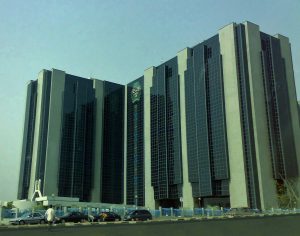
Stakeholders call for $70b yearly investment to avert disaster
By David Akinmola
Africa’s $300 billion blue economy faces an existential threat as climate change, weak governance, and environmental degradation place nearly 49 million jobs at risk across fisheries, tourism, shipping, and renewable energy. Experts warn that unless governments take urgent action, coastal cities alone could lose up to $86.5 billion by 2050, with devastating consequences for livelihoods and food security.
This alarm was raised yesterday at the 10th International Maritime Business-to-Business (IMB2B) Conference and Exhibition of the Lagos International Maritime (LIM) Week, themed “Our Oceans, Our Seas, Our Obligations Maximising Africa’s Ocean Resources.” Organised by Zoe Maritime Resources Limited, the event convened policymakers, industry leaders, and global partners from France, Denmark, the United States, Ghana and Liberia to deliberate on safeguarding Africa’s ocean wealth.
Dr. Oluwasegun Musa, Executive Chairman of Widescope International Group and Global Transport Policy (GTP), said Africa’s 47,000-kilometre coastline and 13 million square kilometres of exclusive economic zones remain under siege from climate change, pollution, illegal fishing, and fragmented policy frameworks.
He warned that while the African Blue Economy Strategy provides a continental framework, more than two-thirds of countries still lack national action plans. To close the gap, he said, the continent needs $70 billion in annual investment through 2030.
Represented by GTP’s Director of Strategy and Business Development, Mark Onuchi, Musa stressed that illegal, unreported, and unregulated (IUU) fishing costs Africa billions annually while eroding fish stocks. West Africa alone, he said, risks a 30 per cent decline in catch potential.
“Fisheries and aquaculture could close Africa’s projected 12-million-tonne fish deficit by 2050, but only with strategic investment and stronger regulation,” he noted.
He added that Africa’s growing coastal population—expected to expand by 143 million by 2035—would intensify marine pollution from plastics, oil spills, and industrial waste.
However, he identified offshore renewable energy as a transformative opportunity, noting that South Africa alone could unlock 900 gigawatts of offshore wind power, nearly 45 times the continent’s current electricity capacity.
Beyond energy, Musa said coastal and marine tourism, currently worth $80 billion and employing 24 million people, could serve as a catalyst for growth if developed sustainably.
He cited the Seychelles’ “debt-for-nature” swap—where debt restructuring funded marine conservation—as a model for African nations seeking innovative financing solutions.
“The challenges confronting our oceans are transnational. Africa must speak with one voice globally to defend its maritime interests, influence policy, and forge partnerships to tackle the climate and biodiversity crises,” Musa said.
Convener of LIMWEEK and Chair of Zoe Maritime Resources Limited, Oritsematosan Edodo-Emore, echoed the urgency, stressing that unlocking Africa’s ocean resources is key to reducing poverty. She also called for stronger maritime security in the Gulf of Guinea and modernisation of ports to meet the demands of digital trade.
“Smart ports are essential for tackling vessel delays, inefficient customs clearance, and outdated manual processes. Africa cannot afford to be left behind in the era of digital innovation,” Edodo-Emore said.
Stakeholders agreed that Africa’s oceans hold the key to sustainable prosperity—but without decisive action, the same waters could become the continent’s greatest liability.







